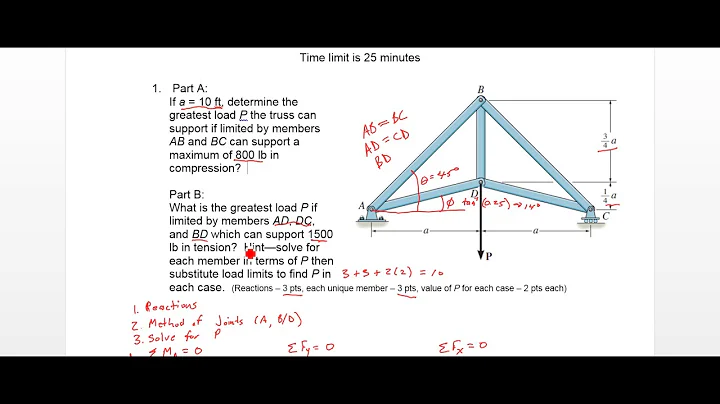Equivalent of "truss -T" and "truss -U" on Linux?
Solution 1
To the best of my knowledge this can't be done with strace, the ptrace function which is used internally does SIGSTOP or SIGINT on calls.
EDIT:
I inserted this simple solution in ministrace, so no coding is required.
My proposed solution, if the not all the functionality of strace is required, would be to modify ministrace - which I found here Write yourself an strace in 70 lines of code.
In a one shot program you could add two lines before the following code:
if (wait_for_syscall(child) != 0) break;
Pseudo code:
if(syscall == SYS_write)
do {
char str[4];
gets(str); // waits until enter to continue
} while(0);
I've not tesed any of this, these final steps are left to you.
Solution 2
Systemtap should be able to do what you are looking for, that's a nice guide for it:
Related videos on Youtube
Stéphane Chazelas
Updated on September 18, 2022Comments
-
 Stéphane Chazelas over 1 year
Stéphane Chazelas over 1 yearIs there an equivalent of what the
-Tand-Uoption of thetrussSolaris utility does on Linux.Those are to specify a system call (
-T) or library function (-U) which when called by the traced application would cause it to stop.Or, said otherwise, I'd want any process started by a traced application to be stopped (as if killed by SIGSTOP) as soon as it makes a given system call or a given shared library function call.
straceandltraceon Linux provide with much of the featureset of Solaristruss, but they don't seem to be doing that.For instance:
truss -f -T open cmdWould be like
strace -f cmdexcept that if the process executingcmdor any of its descendants does anyopensystem call, it would be stopped immediately (and I can resume it later on at my convenience)In some cases, I could use
gdb'scatch syscall, but I was looking for a solution that can conveniently follow forks and continue doing it for all the forked processes and keep on doing it even afterexecves.I seem to recall some utility giving the same functionality, even one (or options to that same utility) to single-step applications between some occurrences of some syscall remotely like that, but my memory is failing me, I can't even be sure that was on Linux.
-
 Bratchley almost 11 yearsNot really an answer to your question but gdb does have some options for following forks, it just doesn't key off an execve. It still only does one process at a time, though, which is probably a deal breaker if you're looking for strace-like functionality, but I thought I'd mention it just in case.
Bratchley almost 11 yearsNot really an answer to your question but gdb does have some options for following forks, it just doesn't key off an execve. It still only does one process at a time, though, which is probably a deal breaker if you're looking for strace-like functionality, but I thought I'd mention it just in case. -
 Stéphane Chazelas almost 11 years@JoelDavis, thanks. And it seems it can also follow after exec, (
Stéphane Chazelas almost 11 years@JoelDavis, thanks. And it seems it can also follow after exec, (follow-exec-mode), I'm experimenting with that. Doesn't strictly answer the question, but may be good enough for what I need. -
 slm almost 11 yearsIf I understand your question you're looking for a way to trace until a specific signal is seen and then stop tracing, not halt or kill the application you're tracing in any way, right?
slm almost 11 yearsIf I understand your question you're looking for a way to trace until a specific signal is seen and then stop tracing, not halt or kill the application you're tracing in any way, right? -
 Stéphane Chazelas almost 11 years@slm, no, I want a process started by a traced application to be stopped (as if killed by SIGSTOP) as soon as it makes a given system call. I've added a link to the Solaris
Stéphane Chazelas almost 11 years@slm, no, I want a process started by a traced application to be stopped (as if killed by SIGSTOP) as soon as it makes a given system call. I've added a link to the Solaristrussmanpage. -
 sparticvs almost 11 yearsLet me make sure I understand correctly. You want a way to stop a process when it makes a specific systemcall. Is that correct?
sparticvs almost 11 yearsLet me make sure I understand correctly. You want a way to stop a process when it makes a specific systemcall. Is that correct?
-
-
 Stéphane Chazelas almost 11 yearsThanks. It works and that link is very useful. However (understandably in a few lines of code), it doesn't do the arg decoding that gdb/strace do, so would not have been useful for my purpose. It shows though that it's easily done. I went for gdb in the end but it looks like patching strace for that feature would be relatively easy. Leaving the question open as I suspect there is an existing command to do that. I'll look at python-ptrace when I've got the time.
Stéphane Chazelas almost 11 yearsThanks. It works and that link is very useful. However (understandably in a few lines of code), it doesn't do the arg decoding that gdb/strace do, so would not have been useful for my purpose. It shows though that it's easily done. I went for gdb in the end but it looks like patching strace for that feature would be relatively easy. Leaving the question open as I suspect there is an existing command to do that. I'll look at python-ptrace when I've got the time. -
Daniël W. Crompton almost 11 yearsYou're welcome! I went a little wild in extending the implementation, so it would be possible to reference the syscall by id and by name. It was fun playing with ptrace again.


![Special Symbols in Linux Command Line - ~ .. * ? ; [ ] && &](https://i.ytimg.com/vi/l3Uq2B7K3gE/hq720.jpg?sqp=-oaymwEcCNAFEJQDSFXyq4qpAw4IARUAAIhCGAFwAcABBg==&rs=AOn4CLDcdVORVEhntgq5_VC5sxLWZHkP3Q)

![The Method of joints Trusses Ex.1 Structural Analysis Engineering Statics ch.6 [3]](https://i.ytimg.com/vi/m83yZvMAFf8/hq720.jpg?sqp=-oaymwEcCNAFEJQDSFXyq4qpAw4IARUAAIhCGAFwAcABBg==&rs=AOn4CLCLM4-9tN96cOELL5jlmbDjMIOsVg)